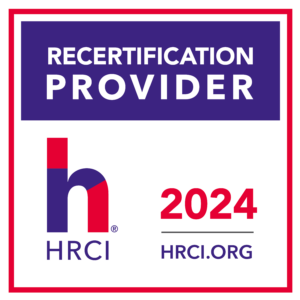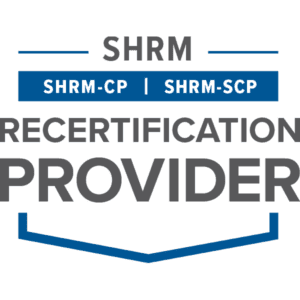Joe Burke, Ryan Sommerfeldt and Laura Wang & Terryberry Partner Webinar – How Peer-Recognition Systems Can Increase (or Decrease) Help-Seeking in the Workplace
Webinar08/21 | 1:00 PM - 2:00 PM ET
Workers in today’s organizations regularly encounter challenges and problems that are difficult to overcome without receiving help from their peers. However, employees often find it difficult to ask their co-workers for help. In this workshop, we will discuss our recent research study examining how peer-recognition systems can lead to employees being more likely to ask others for help.
Many companies use peer-recognition systems to allow employees to publicly recognize their peers for positive behaviors. Recognition system platform providers emphasize the positive effects these recognition systems may have on employees in the organization, including on employee help seeking. We conduct research to demonstrate the effect that peer-recognition systems have on employee help seeking, highlighting when these systems can increase help seeking and when they could decrease help seeking.
When organizations adopt these recognition systems, it is common that they are only used by a subset of employees. In our study, we ran three different experiments to examine not only how peer-recognition systems impact how likely employees are to ask others for help, but also how this effect differs based on whether the peer-recognition system is broadly used by all employees or only narrowly used by specific subgroups of employees.
During our workshop, we will discuss how our experiments were conducted and what we learned. We will finish by discussing implications for organizations and highlight the importance of ensuring that all subgroups of employees actively use the company’s peer-recognition system.
Learning Objectives:
- Gain an overview of peer-recognition systems.
- Understand the importance of social norms in shaping employee behavior.
- Explore how peer-recognition systems can shape social norms and impact employees’ willingness to seek help.
- Understand the circumstances in which peer-recognition systems may enhance helping interactions and when they may undermine such interactions.
Presenters

Joe Burke
Assistant Professor
Indiana University
Joe is an assistant professor at Indiana University, where he teaches business decision making and cost accounting courses. He earned his PhD at The University of Illinois at Urbana-Champaign, and his bachelor’s and MBA at Northern Arizona University. Before pursuing his doctoral degree, Joe worked for Deloitte as an auditor specializing in the energy industry. His research focuses on managerial accounting – his specific interests relate to how non-monetary incentives and controls (e.g., recognition systems, culture, feedback systems, etc.) influence employee behavior (e.g., effort, turnover, honesty), perceptions (e.g., fairness, morale, etc.), and relationships (e.g., peer and hierarchical) in the workplace. He is an avid outdoorsman, and when not working he prefers to be outside with his wife and their massive dog Gus.

Ryan Sommerfeldt
Assistant Professor
Brigham Young University – School of Accountancy
Ryan Sommerfeldt is an assistant professor in the School of Accountancy at Brigham Young University, where he currently teaches courses in managerial accounting. Prior to joining the faculty at Brigham Young University, he was a faculty member at Washington State University. He earned his bachelor’s and master’s degrees from Brigham Young University, and his doctoral degree from The University of Illinois at Urbana-Champaign. Prior to earning his doctoral degree, Ryan worked on the advisory team at Squire and Company, PC, and owned and operated a landscaping company. His research lies at the intersection of managerial accounting and audit and has been published in top-tier journals in accounting such as The Accounting Review, Contemporary Accounting Research, and Issues in Accounting Education. His research specifically focuses on the effects of controls designed to deter and detect misreporting, factors that influence the rationalization of misreporting, and factors that motivate and incentivize employee performance. In his free time, he enjoys sports and spending time with his wife and four children.

Laura Wang
Associate Professor
University of Illinois at Urbana-Champaign – Gies School of Business
Laura Wang is an associate professor of accountancy at the Gies School of Business, University of Illinois at Urbana-Champaign. She obtained her PhD from The University of Texas at Austin. Laura has taught various courses across undergraduate, graduate, and PhD programs, covering topics such as financial accounting, data analytics, managerial decision making, and research methodology. Her research primarily examines the impact of performance control systems on employee motivation and behavior within organizations, and her work has been published in internationally renowned accounting and business journals.
Qualifies for HRCI and SHRM recertification credits.

